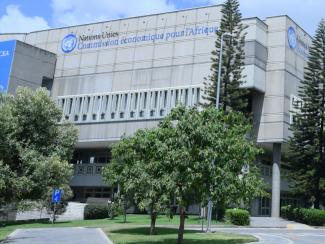Special Economic Zones (SEZs) are a widely used tool in Africa to accelerate industrialization and structural transformation by attracting investment, boosting exports, and creating jobs. Over the last three decades, though a latecomer, Africa’s SEZ landscape has expanded rapidly. As of 2023, more than 230 zones have been established in 43 African countries (Azuelos et al., 2025), and they remain central to many countries' industrialization strategies. Evidence shows SEZs' power to catalyze foreign direct investment (FDI), export growth, and local spillovers when well designed, but outcomes vary substantially across contexts (UNCTAD, 2021; Farole, 2011).
Despite notable success stories, the performance of SEZs in Africa is uneven. Studies identify recurring challenges—weak governance and management models, limited linkages to domestic and regional suppliers, and weak linkages with the local economy, over-reliance on imported inputs, using fiscal incentives as a major tool to attract investment, inadequate infrastructure and utilities, inconsistent regulatory and fiscal regimes, and shortfalls in environmental and social safeguards—that reduce zones’ developmental impact. These gaps explain why some areas experience consistent economic growth and national benefits, while others stay isolated with limited local integration (World Bank, 2008; Rodriguez-Pose et al., 2022).
As African countries advance the implementation of the African Continental Free Trade Area (AfCFTA), the strategic role of SEZs in supporting regional value chains (RVCs) and industrial transformation becomes even more critical. To maximize their contribution, it is necessary to identify and analyze the standards and norms that characterize successful SEZs, drawing on African and global experiences.
The study, ‘Standards and Norms for Successful SEZs in Africa: A Pathway to derisking investment and RVCs,’ aims to identify the standards and norms, their contexts, and enablers that have contributed to successful SEZs, defined by a range of criteria, across different regions. The study also envisages distilling policy recommendations to support the establishment and operationalization of new SEZs in Africa and redesigning the existing ones for better effectiveness, particularly in the context of the AfCFTA. Globally, SEZs are evolving to serve new strategic functions. They are enhancing supply chain resilience through industrial clustering, acting as platforms for de-risking investments amid growing uncertainty, and serving as experimental hubs for emerging technologies. These shifts demand a fresh perspective on what truly defines SEZ success in today’s dynamic global landscape.
It aims to synthesize the evidence base, including surveys, study tours, secondary statistics, and study findings from Africa, Asia, and Latin America, identify practical and actionable standards [success factors] tailored to African contexts, and propose implementation pathways. That is, the study draws lessons from African and global SEZs' experience to make current operational SEZs and next-generation SEZs more successful as magnets for investment, contributing successfully to generating employment opportunities, promoting exports, strengthening RVCs and deepen regional value chain integration across Africa, exploiting the opportunities made available by the AfCFTA, and catalyzing the region’s industrialization and structural transformation agenda.
This Expert Group Meeting (EGM) will convene policymakers, SEZ practitioners, regional bodies, the private sector, and academia/researchers to review, validate, and enrich the draft study report before its finalization and dissemination. These efforts aim to produce a knowledge product that supports policymakers in designing effective SEZ-related frameworks to harness opportunities for industrialization, RVCs, and the AfCFTA. It will offer critical insights to guide broader dialogue on how SEZs can drive structural transformation and technological upgrading across Africa.
As a next step, the study’s findings will serve as a foundation for ECA to deliver tailored support to specific zones and countries, aimed at strengthening their policy and regulatory frameworks that constitute the enabling environment for operational performance and maximizing their economic impact.
Documents
